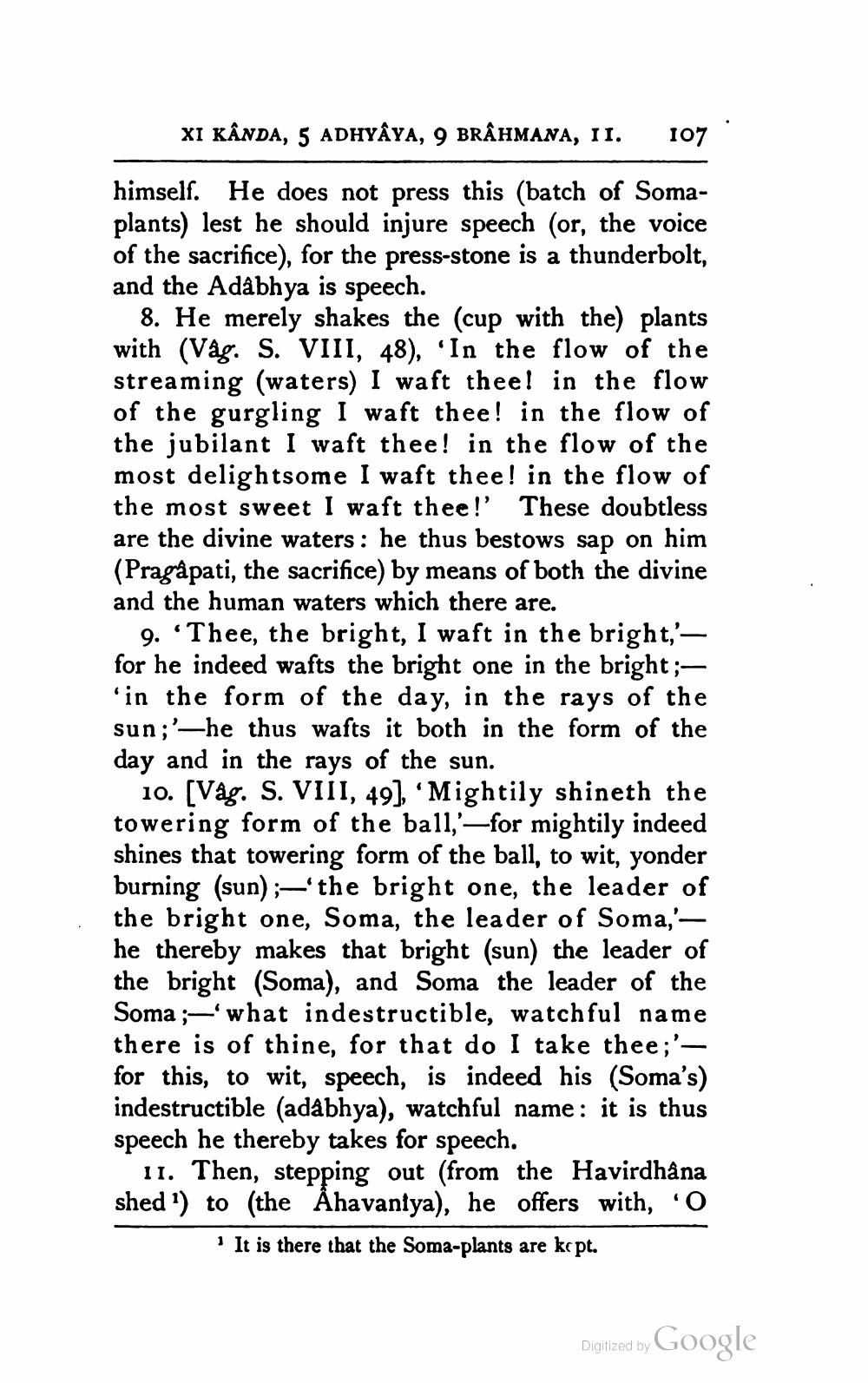________________
XI KÂNDA, 5 ADHYÂYA, 9 BRÂHMANA, II.
107
himself. He does not press this (batch of Somaplants) lest he should injure speech (or, the voice of the sacrifice), for the press-stone is a thunderbolt, and the Adâbhya is speech.
8. He merely shakes the (cup with the plants with (Våg. S. VIII, 48), 'In the flow of the streaming (waters) I waft theel in the flow of the gurgling I waft thee! in the flow of the jubilant I waft thee! in the flow of the most delightsome I waft thee! in the flow of the most sweet I waft thee!' These doubtless are the divine waters : he thus bestows sap on him (Pragàpati, the sacrifice) by means of both the divine and the human waters which there are.
9. 'Thee, the bright, I waft in the bright,'— for he indeed wafts the bright one in the bright ;'in the form of the day, in the rays of the sun;'—he thus wafts it both in the form of the day and in the rays of the sun.
10. [Våg. S. VIII, 49), 'Mightily shineth the towering form of the ball,'—for mightily indeed shines that towering form of the ball, to wit, yonder burning (sun);—'the bright one, the leader of the bright one, Soma, the leader of Soma,' — he thereby makes that bright (sun) the leader of the bright (Soma), and Soma the leader of the Soma ;—'what indestructible, watchful name there is of thine, for that do I take thee;'for this, to wit, speech, is indeed his (Soma's) indestructible (adabhya), watchful name: it is thus speech he thereby takes for speech.
11. Then, stepping out (from the Havirdhana shed) to (the Åhavaniya), he offers with, 'O
1 It is there that the Soma-plants are kept.
Digitized by Google




